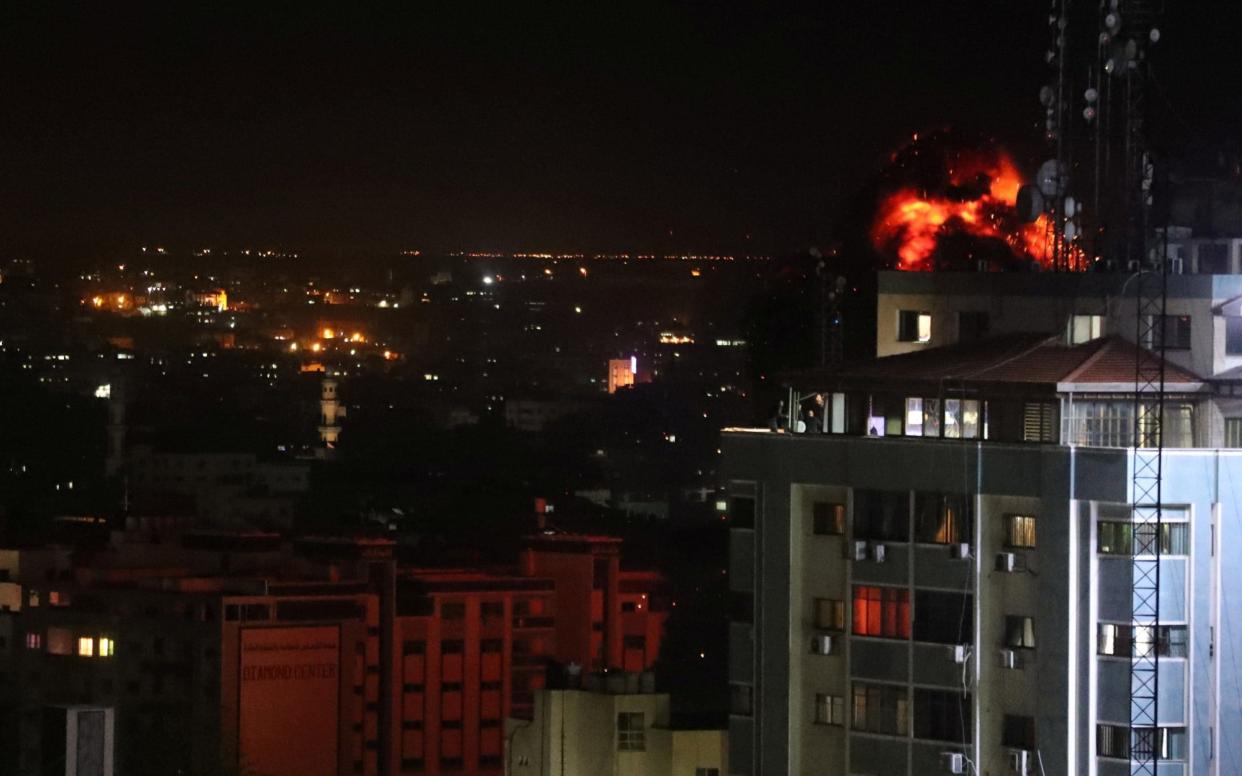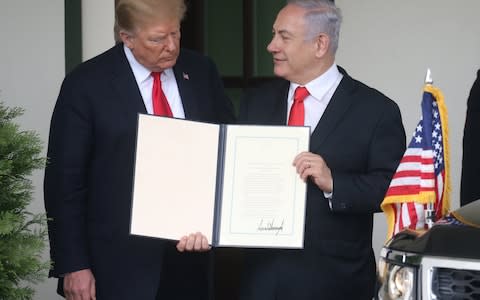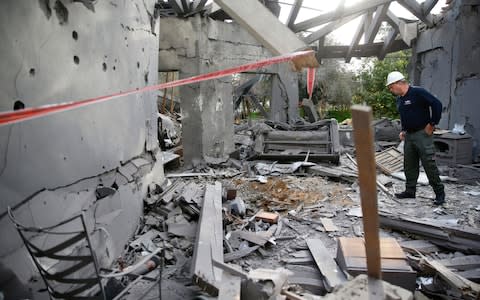Israel returns fire on Gaza as Trump signs historic decree recognising its sovereignty over Golan Heights

Israel launched strikes on Hamas targets in Gaza on Monday hours after a rocket from the Palestinian enclave hit a house near Tel Aviv and wounded seven people, leading to fears of a severe escalation.
The retaliatory strikes began around the same time as Benjamin Netanyahu, the Israeli Prime Minister, held a joint press conference with US President Donald Trump in Washington.
Mr Netanyahu addressed the attack during the White House press conference, saying: "Israel will not tolerate this. I will not tolerate this. And as we speak ... Israel is responding forcefully to this wanton aggression."
The on-camera appearance ended with Mr Trump signing a decree formally recognising Israel's sovereignty over the Golan Heights, a territory which Israel seized from Syria in the 1967 Middle East war.
The move, which formalises a commitment Mr Trump made last week, appeared to give Mr Netanyahu a boost ahead of the closely contested April 9 Israeli elections.

Condemning the attack from Gaza, Mr Trump said Israel has the "absolute right" to defend itself.
"Today, aggressive action by Iran and terrorist groups in southern Syria, including Hezbollah, continue to make the Golan Heights a potential launching ground for attacks against Israel - very violent attacks," Mr Trump said.
"This should have been done numerous presidents ago".
Speaking from the White House, the Israeli leader told Mr Trump "Israel has never had a better friend than you".
Mr Netanyahu said he would cut short his US visit and return home after his meeting with Mr Trump to deal with the aftermath of the Tel Aviv attack.
The flare-up comes at a highly sensitive time for Israel, which holds elections on April 9.
The attack on Gaza has so far involved at least six strikes, including five in and around Gaza City and one in southern Gaza between Rafah and Khan Yunis, according to an Israeli security source.
There are no reports so far of any casualties in Gaza.

Earlier on Monday, a rocket from Gaza hit a house in Mishmeret, around 12 miles north of Tel Aviv, in a rare long-distance strike.
Seven Israelis were injured lightly by burns and shrapnel in the attack, including a six-month-old child. Six of them were members of the same British-Israeli family.
Rocket fire from Gaza at that distance is rare, the rocket would have had to travel some 75 miles.
Israel's army said the rocket was fired by Hamas, the Islamist movement that runs the Gaza Strip, from the Rafah area.
A Hamas official has denied the group was behind the rocket, evoking the possibility it was caused by "bad weather".
But Israel warned of a firm response and announced it was sending two additional brigades to reinforce the Gaza area and carrying out a limited call up of reservists.
Israel's military said in a statement it "has begun striking Hamas terror targets throughout the Gaza Strip."

